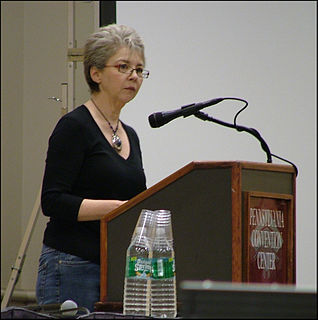A Quote by Herta Muller
Suffering doesn't improve human beings, does it?
Quote Topics
Related Quotes
There is no limit to suffering human beings have been willing to inflict on others, no matter how innocent, no matter how young, and no matter how old. This fact must lead all reasonable human beings, that is, all human beings who take evidence seriously, to draw only one possible conclusion: Human nature is not basically good.
No matter what part of the world we come from, we are all basically the same human beings. We all seek happiness and try to avoid suffering. We have the same basic human needs and concerns. All of us human beings want freedom and the right to determine our own destiny as individuals and as peoples. That is human nature.
It is critical to realize that underlying the extermination of nature is the marginalization of human beings. If we are to save what is wild, what is irreparable and majestic in nature, then we will ironically have to turn to each other and take care of all the human beings here on Earth. There is no boundary that will protect an environment from a suffering humanity.
Those who die, merely suffering the woes of life like cats and dogs, are they human beings? The worthy are those who, even when agitated by the sharp interaction of pleasure and pain, are discriminating and, knowing them to be of an evanescent nature, become passionately devoted to the Atman. This is all the difference between human beings and animals.
Peace or harmony between the sexes and individuals does not necessarily depend on a superficial equalization of human beings; nor does it call for the elimination of individual traits and peculiarities. The problem that confronts us today, and which the nearest future is to solve, is how to be one's self and yet in oneness with others, to feel deeply with all human beings and still retain one's own characteristic qualities.
Wouldn't it be wonderful if you could spare them from all suffering? No, it wouldn't. They would not evolve as human beings and would remain shallow, identified with the external form of things. Suffering drives you deeper. The paradox is that suffering is caused by identification with form and erodes identification with form. A lot of it is caused by the ego, although eventually suffering destroys the ego-but not until you suffer consciously.






































